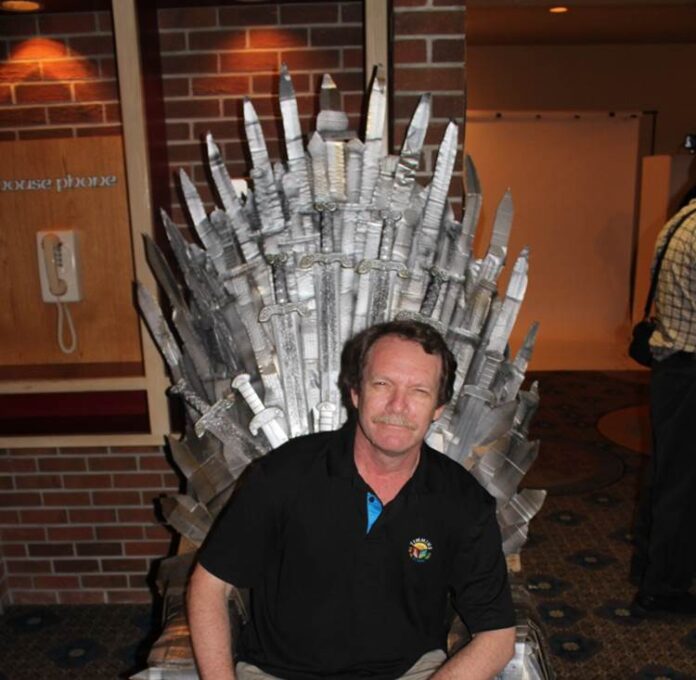 The Hunger is something that all entrepreneurs should have. Not all do, I was a senior engineer in a startup where some of the leading people were extremely high-profile academics, the top of their field, well known internationally. They, or perhaps “the company” promised things that were actually based on expertise that they didn’t have (I discovered this when I was there) though who was to know that, other than people in the discipline? Based on their reputations, tens of millions of dollars were raised from a local (state) government, and the two year timeline for the impossible, in actuality dribbled on to a plus ten year timeline for what was attainable in terms of commercial viability… just.
The Hunger is something that all entrepreneurs should have. Not all do, I was a senior engineer in a startup where some of the leading people were extremely high-profile academics, the top of their field, well known internationally. They, or perhaps “the company” promised things that were actually based on expertise that they didn’t have (I discovered this when I was there) though who was to know that, other than people in the discipline? Based on their reputations, tens of millions of dollars were raised from a local (state) government, and the two year timeline for the impossible, in actuality dribbled on to a plus ten year timeline for what was attainable in terms of commercial viability… just.
Those unhungry academics really only contributed to little more than monthly board meetings. After the company folded there was a managerial buyout and the residual technology, largely built by others in the company, went overseas and was somewhat successful. No real thanks to those unhungry higher ups. The original investors weren’t too happy, or impressed either, they got nothing out of it. The fallout was that the local (state) government, who had been the major investor, didn’t invest in any other university-based technology for over a decade – to the detriment of many more deserving new technologies. Once bitten, twice shy, and who could blame them? And the reputations of those academics… untarnished, they were very high up, after all. Only good tales were told, but they were not successful entrepreneurs.
Entrepreneurs, successful ones, and many not yet successful ones (let’s call them successful entrepreneurs in waiting, failures are the norm early on, but the Hunger drives you on) all have a hunger. For me, the Hunger was there very early on, I knew I didn’t want to work for other people as a teen… though the why is far too complicated to discuss here, honestly, my earliest bosses were pretty good. In fact, my first boss, as a 16 year old in Calgary, Canada, for a company called Palco, was one of the best I ever had. The next three were all pretty good too. But the Hunger is a deeply ingrained part of your soul. I just wanted to go my own way, be my own boss. I was always searching for a way to begin, but, to be honest, I was ahead of my youthful self. I didn’t have the expertise, I had to grow my knowledge and abilities, as it turns out I had to grow my ability for over three decades. However, the Hunger never abated that entire time, if anything it grew.
As an underling, I saw all the mistakes of those above me, many of them having no business acumen at all. And, because my earliest professional jobs were in academia, many of my bosses (not all) had no personal, social nor any sort of managerial skills in the least, many were openly abrasive and very self-important. Think Sheldon from the popular television show “The Big Bang Theory”. Hmmm. My experiences with dysfunctionality were quite broad. It was all highly motivating in terms of finding my own way.
Luck was a big part of how I developed. After a series of “enlightening” but not particularly good jobs, I managed to get a position as a post-doc for a very good academic at an Australian university, he gave me a lot of freedom in developing some technology (having the right supervisor as a PhD or post-doc is crucial, regardless of what you want to do). As it happened, this boss disappeared because of his own personal problems and I was left looking after his grants and students by myself. Thankfully the department was extremely supportive, and I guess I blossomed. I was my own boss, I got my own grants, developed a new technology and it was spun out into a company that I was in full support of, and that technology became a public company… which for me wasn’t so great. However, the lesson here is that university can be a good place for developing new technology… if you have the Hunger. If you get into the right position, you can develop new stuff that might be commercialized.
However, as mentioned, initial commercialization didn’t go so well for me personally. I had let myself be conned by short courses and trendy beliefs. One of the short courses provided by one employer I remember had promoted the view that any good manager could run any enterprise at all. I think the catch here is “good manager”, actually, in hindsight, it would have to be an exceptional manager, and my experience is that those are few and far between. Really, far better to find a manger in the area who knows what they’re doing.
Another misconception I was introduced to was that as a founder of technology you need to let other people do things you know nothing about, like accounting, management, all that stuff. You should just stick to the technical stuff you’re good at – wrong, so wrong. For anyone who has the Hunger, totally wrong, instead, what you need to do is learn the accounting, learn to manage, otherwise you’ll be totally done over, like I was. In fact, working as an academic I had gained some of those skills. I had a team I’d developed the technology with so I’d developed some management skills, and I had grants to manage so I wasn’t oblivious to accounting. You don’t have to do all the accounting, or all of the management yourself, micro-managing is also a mistake, but a founding scientist in a particular field will understand that field probably better than anyone else in the company. It’s a mistake to hand everything over to people who may not have any understanding of the technology or the market. You should at least have a seat at the table, the board table. There is a happy medium between relying on others and continuing to shepherd a technology to market.
I’m not sure the investors of that enterprise I was involved in saw things that way. There’s this myth that scientists can’t know business, that they should just stick to science. Nonsense. There are plumbers successful in business. Not all plumbers are suited to that, but there are many plumbers who are successful in business. There are construction workers successful in business, but not all construction workers are suited to running a business. There are engineers who are successful in business, but not all engineers are suited to running their own business. News flash, if you have the Hunger, you might not be ready, but you can learn how to run your own business, regardless of what profession, trade, or job you are in. I learned accounting, I learned management, I learned how to run a business, it took me three decades but I have realized my dream of having my own company, and bonus… it’s successful. That’s the tale to tell from here. The Hunger is what gets you there. It might take a while to find your way, don’t go in blind, develop the skills, if you have the Hunger you can get there, failures may happen (they did for me) but the Hunger will drive you on.
